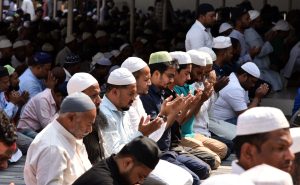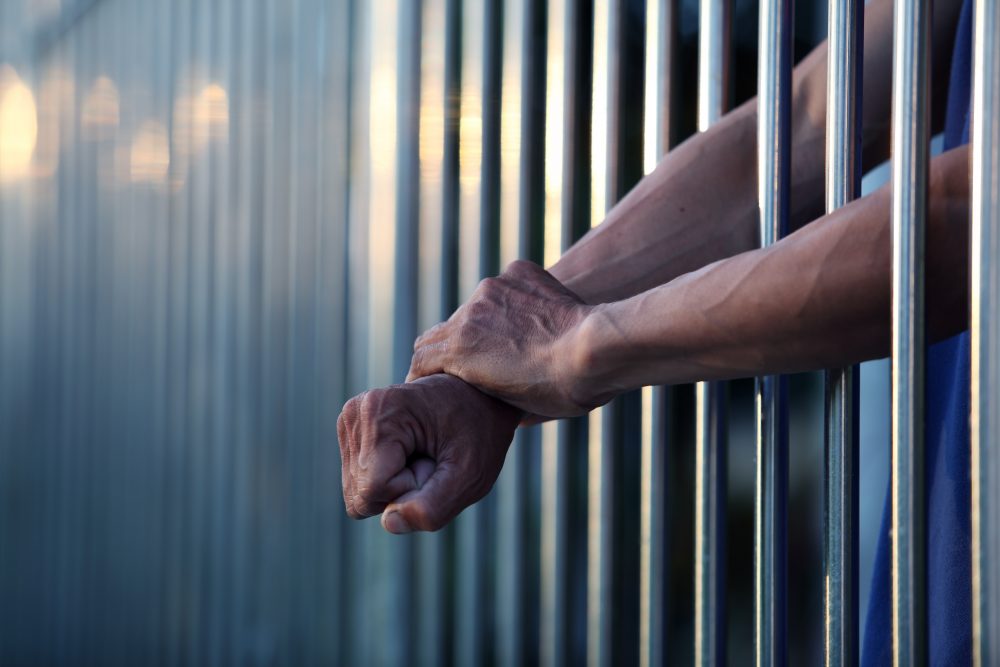California college students have reported a growing trend of Islamophobia, according to recent survey results.
Muslim students at Stanford and UC Berkeley experienced various issues, such as harassment and safety worries, because of their religion.

According to a recent report from the Council on American-Islamic Relations, Muslim college students in California have been facing an alarming increase in harassment and discrimination on their campuses over the past year. This report, released on Tuesday by the Muslim advocacy organization, sheds light on a disturbing trend that has been on the rise, especially in the aftermath of the ongoing Israeli-Palestinian conflict.
The tense atmosphere at many Bay Area schools has escalated tensions, resulting in clashes between police and students during protests at various campuses, including Stanford University, the University of California at Berkeley, and Cal Poly Humboldt. These incidents have sparked a flurry of new university policies aimed at cracking down on student protests and encampments.
Musa Tariq, the policy coordinator at CAIR's San Francisco Bay Area office, expressed the gravity of the situation by saying, "This past year has been extremely traumatizing for Muslim college students standing against the genocide in Gaza." He further added, "The levels of harassment and discrimination that Muslim college students have had to face on their campuses throughout the state are unprecedented."
The report, which was conducted in collaboration with CAIR's Center for the Prevention of Hate and Bullying, gathered anonymous survey responses from 720 students at 87 public and private higher education institutions during the 2023-24 school year. These responses pointed to a concerning pattern of increasing harassment, intensified Islamophobic incidents, and a lack of support from university administrators.
Shockingly, nearly half of the students who responded reported experiencing harassment or discrimination on campus due to their Muslim identity, and a staggering 92% of them said it happened after the Oct. 7 Hamas attack on Israel. Iman Deriche, a third-year student at Stanford University, shared her experience of receiving a call from her father, who advised her to stay inside, lock her doors, and be cautious while walking around campus. "At first, I didn't understand the gravity of his words, but after just a week, his suggestions became an essential part of my daily routine," Deriche recalled.
Deriche also disclosed that she had personally faced multiple incidents of harassment and discrimination due to her Muslim identity during the fall semester. She was followed, verbally and physically assaulted, and even threatened by other students. Despite reporting these incidents to the university, she and many other Muslim, Arab, and Palestinian students on campus felt both invisible and hyper-visible. "The university is committed to providing a safe, supportive, and harassment-free environment for our students," said Stanford in a statement.
However, only one in four students who experienced harassment or discrimination reported it to their school administration or law enforcement. And among those who did report it, 90% felt that their school's response was inadequate. The report also highlighted several universities with particularly high rates of response, including Berkeley, where 31 student responses were received, with 85% of them reporting experiencing harassment and discrimination on campus due to their Muslim identity.
Dan Mogulof, the assistant vice chancellor for executive communications at UC Berkeley, stated, "UC Berkeley has an unwavering commitment to ensuring that every student, regardless of their origin, identity, or perspective, feels safe, respected, and welcome at all times." He urged students to report any instances of bias, discrimination, or harassment immediately to the Office for the Prevention of Harassment and Discrimination, promising to take these complaints seriously and respond to them.
However, Zaid Yousef, a second-year law student at UC Berkeley, expressed disappointment with the university's leadership, saying that dismissive comments from officials like university law school dean Erwin Chemerinsky have made Muslim students feel unwelcome on campus. "Berkeley has failed time and time again to protect its Muslim students," Yousef said. "The only support we've been offered is lip service in the form of emails and meetings where no serious discussions are had, and no meaningful decisions are made."
CAIR's policy coordinator, Tariq, emphasized the importance of holding California colleges and universities accountable for the safety of their students. He said, "We hope that the findings of this survey will serve as a wake-up call for these institutions to take necessary steps to protect their students." He also expressed concerns about the upcoming political climate and the potential increase in Islamophobia, given the policies of the new administration.
In light of the recent increase in anti-Semitic incidents across college campuses, as reported by the Anti-Defamation League, which recorded a 140% rise in such incidents from 2022 to 2023, CAIR's report serves as a reminder of the need for creating a safe and inclusive environment for all students. The Jewish Community Relations Council, however, did not respond to requests for comment.
Tariq concluded by saying, "While we remain hopeful that the climate on college campuses will improve with time, we must remain vigilant, especially in the face of the upcoming Trump administration, whose policies may likely promote violent repression of student voices." The organization's report aims to bring attention to the urgent need for addressing the rising discrimination and harassment faced by Muslim college students and to hold authorities accountable for protecting their rights.










